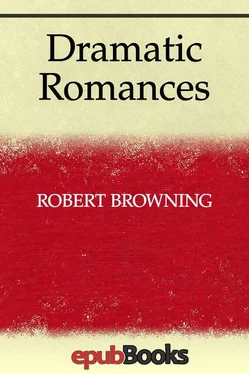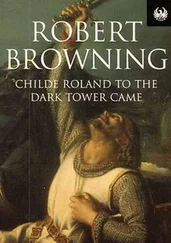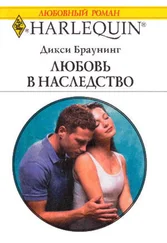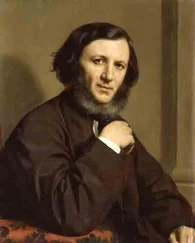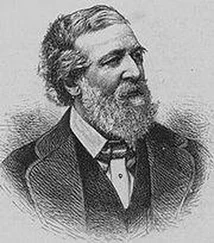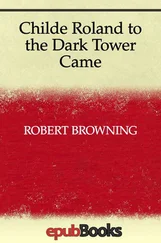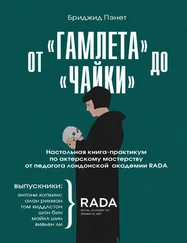Роберт Браунинг - Dramatic Romances
Здесь есть возможность читать онлайн «Роберт Браунинг - Dramatic Romances» весь текст электронной книги совершенно бесплатно (целиком полную версию без сокращений). В некоторых случаях можно слушать аудио, скачать через торрент в формате fb2 и присутствует краткое содержание. Год выпуска: 2014, Издательство: epubBooks Classics, Жанр: Поэзия, на английском языке. Описание произведения, (предисловие) а так же отзывы посетителей доступны на портале библиотеки ЛибКат.
- Название:Dramatic Romances
- Автор:
- Издательство:epubBooks Classics
- Жанр:
- Год:2014
- ISBN:нет данных
- Рейтинг книги:3 / 5. Голосов: 1
-
Избранное:Добавить в избранное
- Отзывы:
-
Ваша оценка:
- 60
- 1
- 2
- 3
- 4
- 5
Dramatic Romances: краткое содержание, описание и аннотация
Предлагаем к чтению аннотацию, описание, краткое содержание или предисловие (зависит от того, что написал сам автор книги «Dramatic Romances»). Если вы не нашли необходимую информацию о книге — напишите в комментариях, мы постараемся отыскать её.
Dramatic Romances — читать онлайн бесплатно полную книгу (весь текст) целиком
Ниже представлен текст книги, разбитый по страницам. Система сохранения места последней прочитанной страницы, позволяет с удобством читать онлайн бесплатно книгу «Dramatic Romances», без необходимости каждый раз заново искать на чём Вы остановились. Поставьте закладку, и сможете в любой момент перейти на страницу, на которой закончили чтение.
Интервал:
Закладка:
II
I
"When I last saw Waring…"
(How all turned to him who spoke! 210
You saw Waring? Truth or joke?
In land–travel or sea–faring?)
II
"We were sailing by Triest
Where a day or two we harboured:
A sunset was in the West,
When, looking over the vessel's side,
One of our company espied
A sudden speck to larboard.
And as a sea–duck flies and swims
At once, so came the light craft up, 220
With its sole lateen sail that trims
And turns (the water round its rims
Dancing, as round a sinking cup)
And by us like a fish it curled,
And drew itself up close beside,
Its great sail on the instant furled,
And o'er its thwarts a shrill voice cried,
(A neck as bronzed as a Lascar's)
'Buy wine of us, you English Brig?
Or fruit, tobacco and cigars? 230
A pilot for you to Triest?
Without one, look you ne'er so big,
They'll never let you up the bay!
We natives should know best.'
I turned, and 'just those fellows' way,'
Our captain said, 'The 'long–shore thieves
Are laughing at us in their sleeves.'
III
"In truth, the boy leaned laughing back;
And one, half–hidden by his side
Under the furled sail, soon I spied, 240
With great grass hat and kerchief black,
Who looked up with his kingly throat,
Said somewhat, while the other shook
His hair back from his eyes to look
Their longest at us; then the boat,
I know not how, turned sharply round,
Laying her whole side on the sea
As a leaping fish does; from the lee
Into the weather, cut somehow
Her sparkling path beneath our bow 250
And so went off, as with a bound,
Into the rosy and golden half
O' the sky, to overtake the sun
And reach the shore, like the sea–calf
Its singing cave; yet I caught one
Glance ere away the boat quite passed,
And neither time nor toil could mar
Those features: so I saw the last
Of Waring!"—You? Oh, never star
Was lost here but it rose afar! 260
Look East, where whole new thousands are!
In Vishnu–land what Avatar?
NOTES:
"Waring." In recounting the sudden disappearance from among his friends of a man proud and sensitive, who with fine powers of intellect yet incurred somewhat of disdain because of his failure to accomplish anything permanent, expression is given to the deep regret experienced by his friends now that he has left them, his absence having brought them to a truer realization of his worth. If only Waring would come back, the speaker, at least, would give him the sympathy and encouragement he craved instead of playing with his sensibilities as he had done. Conjectures are indulged in as to Waring's whereabouts. The speaker prefers to think of him as back in London preparing to astonish the world with some great masterpiece in art, music, or literature. Another speaker surprises all by telling how he had seen the "last of Waring" in a momentary meeting at Trieste, but the first speaker is certain that the star of Waring is destined to rise again above their horizon.
1. Waring: Alfred Domett (born at Camberwell Grove, Surrey, May 20, 1811), a friend of Browning's, distinguished as a poet and as a Colonial statesman and ruler. His first volume of poems was published in 1832. Some verses of his in Blackwood's, 1837, attracted much attention to him as a rising young poet. In 1841 he was called to the bar, and in 1841 went out to New Zealand among the earliest settlers. There he lived for thirty years, filling several important official positions. His unceremonious departure for New Zealand with no leave–takings was the occasion of Browning's poem, which is said by Mrs. Orr to give a lifelike sketch of Domett's character. His "star" did, however, rise again for his English friends, for he returned to London in 1871. The year following saw the publication of his "Ranolf and Amohia," a New Zealand poem, in the course of which he characterizes Browning as "Subtlest Asserter of the Soul in Song." He met Browning again in London, and was one of the vice–presidents of the London Browning Society. Died Nov.12, 1877.
15. I left his arm that night myself: George W. Cooke points out that in his Living Authors of England Thomas Powell describes this incident, the "young author" mentioned being himself: "We have a vivid recollection of the last time we saw him. It was at an evening party, a few days before he sailed from England; his intimate friend, Mr. Browning, was also present. It happened that the latter was introduced that evening for the first time to a young author who had just then appeared in the literary world. This, consequently, prevented the two friends from conversation, and they parted from each other without the slightest idea on Mr. Browning's part that he was seeing his old friend Domett for the last time. Some days after, when he found that Domett had sailed, he expressed in strong terms to the writer of this sketch the self–reproach he felt at having preferred the conversation of a stranger to that of his old associate."
54. Monstr'–inform'–ingens–horrend–ous: a slight transposition of part of a line in Virgil describing Polyphemus, "Monstrum horrendum informe ingens," a monster horrid, misshapen, huge.
55. Demoniaco–seraphic: these two lines form a compound of adjectives humorously used by Browning to express the inferiority of the writers he praised to Waring.
99. Ichabod: "Ichabod, the glory is departed." I Samuel IV. 21.
112. syenite: Egyptian granite
122. Lamb–white maiden: Iphigenia, who was borne away to Taurus by Diana, when her father, Agamemnon, was about to sacrifice her to obtain favorable winds for his expedition to Troy.
152. Caldara Polidore: Surnamed da Caravaggio. He was born in Milan in 1492, went to Rome and was employed by Raphael to paint the friezes in the Vatican. He was murdered by a servant in Messina, 1543.
155. Purcell: an eminent English musician, composer of church music, operas, songs, and instrumental music. (1658–1695).—Rosy Bowers: One of Purcell's most celebrated songs. "'From Rosie Bowers' is said to have been set in his last sickness, at which time he seems to have realized the poetical fable of the Swan and to have sung more sweetly as he approached nearer his dissolution, for it seems to us as if no one of his productions was so elevated, so pleasing, so expressive, and throughout so perfect as this" (Rees's Cyclopaedia, 1819).
190. Garrick: David, an English actor, celebrated especially for his Shakespearian parts (1716–1779).
193. Junius: the assumed name of a political writer who in 1769 began to issue in London a series of famous letters which opposed the ministry in power, and denounced several eminent persons with severe invective and pungent sarcasm.
195. Some Chatterton shall have the luck of calling Rowley into life: the chief claim to celebrity of Thomas Chatterton (1752–1770) is the real or pretended discovery of poems said to have been written in the fifteenth century by Thomas Rowley, a priest of Bristol, and found in Radcliffe church, of which Chatterton's ancestors had been sextons for many years. They are now generally considered Chatterton's own.
The Twins
"Give" and "It–shall–be–given–unto–you"
I
Grand rough old Martin Luther
Bloomed fables–flowers on furze,
The better the uncouther:
Do roses stick like burrs?
II
A beggar asked an alms
One day at an abbey–door,
Said Luther; but, seized with qualms,
The abbot replied, "We're poor!"
III
"Poor, who had plenty once,
When gifts fell thick as rain: 10
But they give us nought, for the nonce,
And now should we give again?"
Интервал:
Закладка:
Похожие книги на «Dramatic Romances»
Представляем Вашему вниманию похожие книги на «Dramatic Romances» списком для выбора. Мы отобрали схожую по названию и смыслу литературу в надежде предоставить читателям больше вариантов отыскать новые, интересные, ещё непрочитанные произведения.
Обсуждение, отзывы о книге «Dramatic Romances» и просто собственные мнения читателей. Оставьте ваши комментарии, напишите, что Вы думаете о произведении, его смысле или главных героях. Укажите что конкретно понравилось, а что нет, и почему Вы так считаете.
